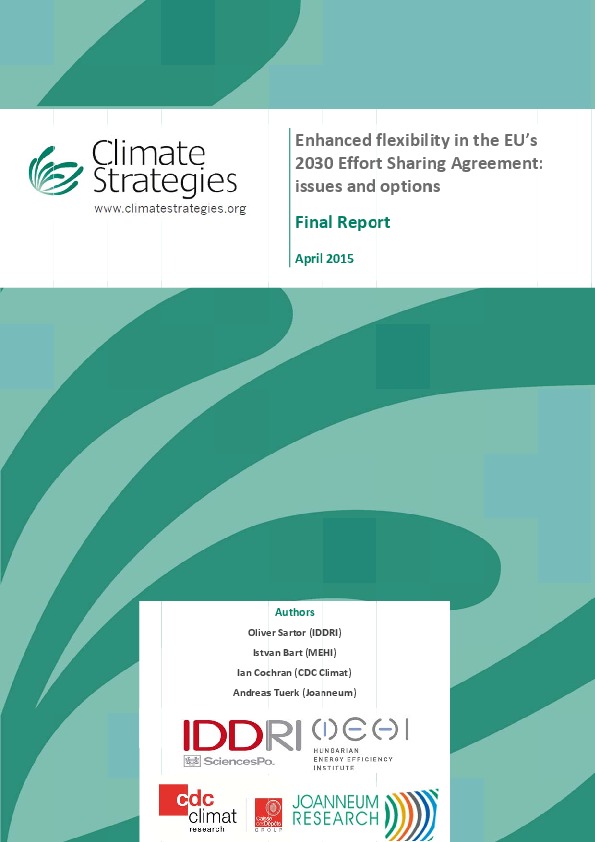Enhanced flexibility in the EU’s 2030 Effort Sharing Agreement: issues and options
By Olivier Sartor (IDDRI), Istvan Bart (MEHI), Ian Cochran (I4CE) and Andreas Tuerk (Joanneum)
Reducing emissions from sectors not covered by the European Union Emissions Trading Scheme (EU ETS) will be crucial to achieving Europe’s emissions reduction goals for 2030 and beyond. In 2012, these “effort sharing agreement” sectors accounted for approximately 60% of EU greenhouse gas emissions. Last October, the European Council set a goal of reducing emissions in the non‐ETS by 30% (relative to 2005 levels) by 2030.
